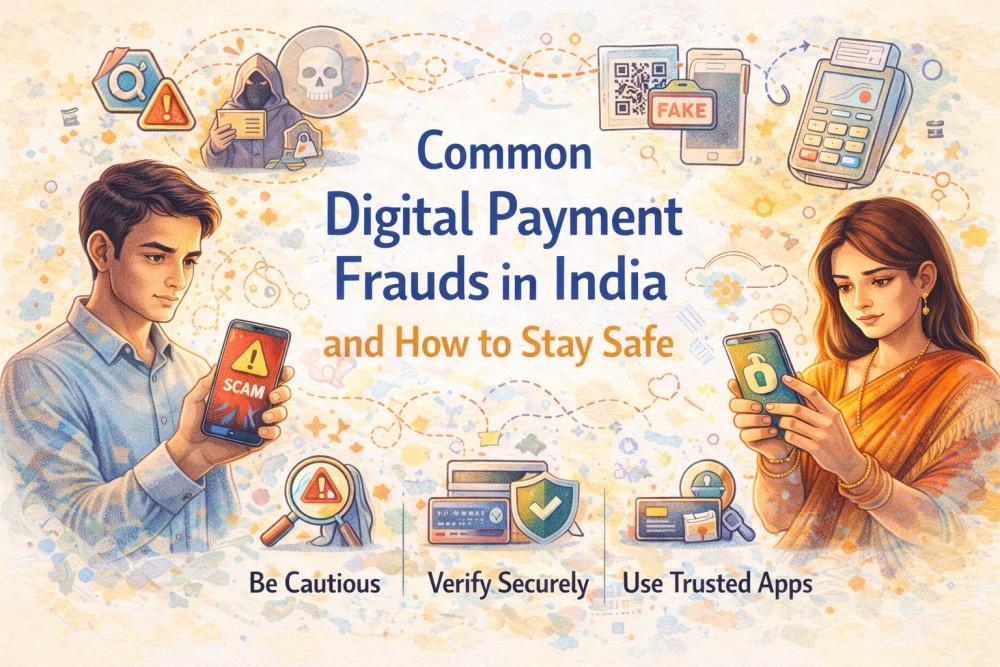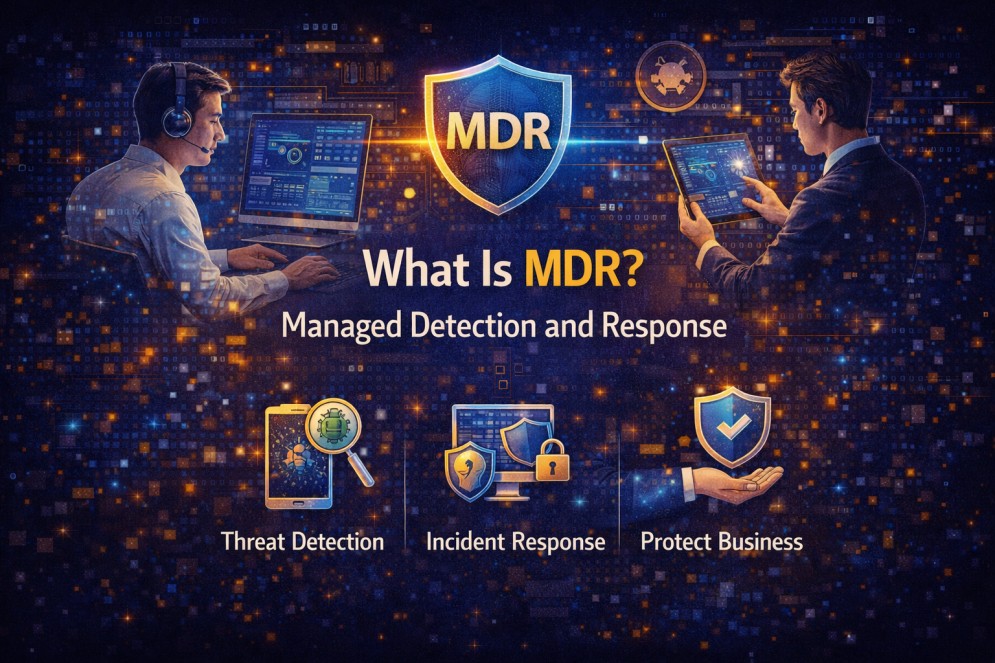
May

The Role of GDPR in Strengthening Data Protection & Cybersecurity Today
-
Quick Heal / 9 months
- May 27, 2025
- 0
The General Data Protection Regulation (GDPR) has been a game-changer in the realm of data protection and cybersecurity since its implementation in May 2018. As the most comprehensive data privacy law to date, GDPR has not only transformed the way organizations handle personal data but has also set a new standard for data security and privacy on a global scale. Its far-reaching impact has compelled businesses to reevaluate their data practices and strengthen their cybersecurity measures to ensure compliance and protect the rights of individuals.
In this blog, we will delve into the key aspects of GDPR, its core principles, and how it has significantly contributed to bolstering data protection and GDPR cyber security.
What is GDPR?
The General Data Protection Regulation (GDPR) is a comprehensive data protection law that applies to all organizations processing the personal data of European Union (EU) citizens, regardless of the organization’s location. It aims to give individuals greater control over their personal data and ensure that businesses handle this data responsibly and transparently. GDPR defines personal data as any information relating to an identified or identifiable natural person, such as a name, email address, or IP address.
The key principles and goals of GDPR include:
- Lawfulness, fairness, and transparency in data processing
- Purpose limitation (data collected for specific, explicit, and legitimate purposes)
- Data minimization (collecting only necessary data)
- Accuracy of personal data
- Storage limitation (retaining data only for as long as necessary)
- Integrity and confidentiality (ensuring data security)
- Accountability (demonstrating compliance with GDPR principles)
The Core Principles of GDPR
Let’s explore some of the key principles:
- Data Minimization: Collect only the personal data necessary for specific purposes—avoid excess or irrelevant information.
- Accountability: Organizations must prove GDPR compliance through records, policies, and risk assessments.
- Transparency: Clearly inform individuals about how their data is collected, used, and shared in an accessible way.
Other important principles include purpose limitation, accuracy, storage limitation, and integrity and confidentiality of personal data.
Key GDPR Requirements for Businesses
To ensure compliance with GDPR, businesses must adhere to several key requirements. These requirements are designed to protect the rights of individuals and promote responsible data handling practices. Some of the main GDPR requirements include:
- Data Subject Rights: GDPR grants individuals specific rights over their personal data, such as the right to access, rectify, erase, and object to the processing of their data.
- Data Protection by Design and Default: GDPR mandates that data protection measures are built into systems and processes from the start, rather than being an afterthought.
How GDPR Enhances Data Security
By mandating stronger data security practices, GDPR has significantly contributed to enhancing overall cybersecurity. Some of the ways GDPR enhances data security include:
- Data Encryption: GDPR encourages the use of encryption to protect personal data, both at rest and in transit.
- Breach Notification: GDPR introduced strict breach notification requirements, obligating organizations to report data breaches to the relevant supervisory authority within 72 hours of becoming aware of the incident.
- Regular Testing and Evaluation: GDPR mandates regular testing and evaluation of the effectiveness of technical and organizational measures implemented for data security.
GDPR’s Impact on Cybersecurity Measures
Let’s explore some of the key areas where GDPR has influenced cybersecurity practices:
- Risk Assessment: GDPR mandates regular risk assessments, prompting organizations to proactively identify vulnerabilities and implement security controls.
- Incident Management: Breach notification rules have improved incident response, with better tools and processes for detecting, investigating, and reporting breaches.
- Third-Party Risk: GDPR enforces accountability for vendors’ data practices, leading to stricter due diligence and data protection clauses in contracts.
- Employee Training: Emphasis on staff awareness has driven investment in training programs on data protection, secure handling, and incident reporting.
GDPR and Data Breach Reporting
The regulation mandates that organizations must notify the relevant supervisory authority within 72 hours of becoming aware of a data breach, unless the breach is unlikely to result in a risk to the rights and freedoms of individuals. Additionally, if the breach poses a high risk to individuals, the affected individuals must be notified without undue delay.
The timeline for breach reporting under GDPR is as follows:
| Breach Discovered | Notification to Supervisory Authority | Notification to Affected Individuals |
|---|---|---|
| Within 72 hours | Required, unless low risk | Required if high risk |
| After 72 hours | Required, with justification for delay | Required if high risk |
To comply with these reporting requirements, organizations must have robust breach detection and response processes in place. This includes:
- Implementing tools and technologies to detect and investigate breaches quickly
- Establishing clear incident response procedures and communication protocols
- Conducting regular testing and drills to ensure the effectiveness of breach response plans
- Maintaining detailed records of data processing activities to facilitate breach investigations
The Role of GDPR in Building Consumer Trust
Some of the ways GDPR helps in establishing consumer trust include:
- Transparency & Consent: GDPR requires clear communication about data use and mandates explicit user consent for processing personal data.
- Data Subject Rights: Individuals have rights to access, correct, and delete their data, reinforcing control and privacy.
- Accountability & Governance: Organizations must prove GDPR compliance through policies, audits, and records of data processing.
- Data Security: Emphasis on encryption and breach notifications ensures data protection and builds user trust.
Challenges and Compliance Obstacles for Businesses
Some of the common challenges businesses face when implementing GDPR compliance include:
- Cost & Resources: GDPR compliance demands significant investment in tech, training, and staff especially challenging for SMEs.
- Complexity: The regulation’s detailed provisions can be hard to interpret and apply, making compliance difficult.
- Legacy Systems: Mapping personal data in outdated systems is often time-consuming and resource-heavy.
- Third-Party Compliance: Ensuring vendors meet GDPR standards is tough, particularly with large or complex supply chains.
- Balancing Priorities: GDPR limits on data use can conflict with business goals like marketing and analytics, requiring careful trade-offs.
The Future of GDPR and Data Protection
As technology continues to evolve and new data protection challenges emerge, GDPR will likely adapt and evolve to address these changing landscapes. The regulation has already set a strong foundation for data protection and has influenced the development of similar laws in other jurisdictions, such as the California Consumer Privacy Act (CCPA) in the United States.
Looking ahead, we can expect GDPR to continue shaping the future of data protection and cybersecurity in several ways:
- Global Harmonization: GDPR has led to more aligned data protection laws and greater international regulatory cooperation.
- Privacy by Design: As tech evolves, integrating privacy into AI and IoT development from the start is increasingly essential.
- Stronger Individual Rights: Expect expansion of personal data rights, giving users even more control.
- Tougher Enforcement: With growing experience, regulators are likely to increase enforcement and impose higher penalties.
- Ongoing Improvement: GDPR promotes continuous updates to data protection practices in line with evolving best practices and guidance.
Stay Protected with Quick Heal
GDPR has significantly reshaped global data protection by enforcing stricter standards for data security, transparency, and individual rights. It has driven organizations to adopt robust security measures and fostered greater consumer trust through responsible data handling. As the regulatory landscape evolves, continuous compliance and proactive data governance remain essential.
Quick Heal Total Security, as a leading cybersecurity solutions provider, supports organizations in meeting GDPR requirements by offering advanced tools for data protection, threat detection, and compliance management.
Check Out Our Full Antivirus Range






